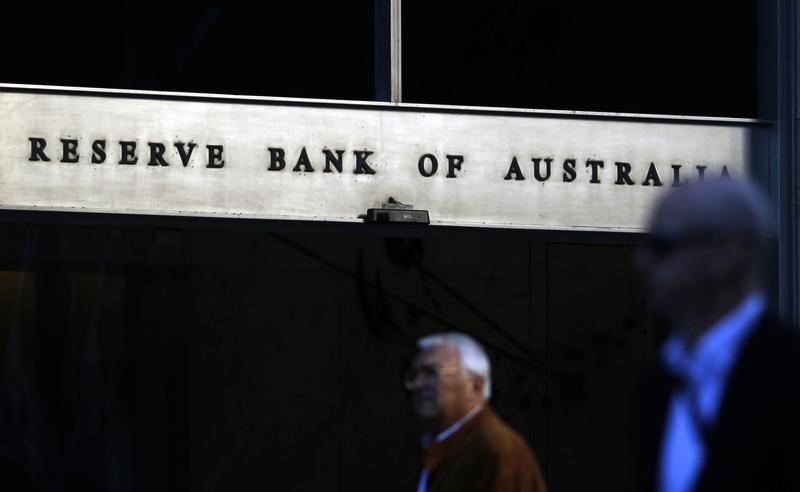* RBA board discussed financial stability risks at length
* High household debt, low wages growth weigh on spending
* Housing prices show tentative signs of easing, more data eyed
* Moody's downgrades 12 banks citing risks in household sector
By Swati Pandey and Wayne Cole
SYDNEY, June 20 (Reuters) - Australia's central bank ramped up its rhetoric on financial stability risks amid runaway property prices and soaring household debt, a threat that prompted ratings agency Moody's to downgrade the country's biggest banks this week.
Fears over the effects of a sharp correction in the housing market mean interest rates in Australia are likely to stay at an all-time low of 1.50 percent for a considerable time - even as some global central banks turn hawkish. Reserve Bank of Australia (RBA) last cut interest rates in August 2016. It has since stood pat, juggling the risks of record household debt, tepid inflation and weak consumer spending.
RBA board members spent considerable time at their June policy meeting discussing the relationship between financial stability and monetary policy. They even reviewed the academic literature and policy experience in a number of countries, including Sweden and the United States.
"This highlights the focus of monetary policy at present, with considerations around financial stability trumping almost everything else including sub-target inflation," said Su-Lin Ong, head of economics at RBC.
"This will keep housing, lending, and credit growth dynamics firmly in the spotlight and at top of the RBA's list as it ponders the appropriate stance of policy."
Australia's household sector is under severe strain with debt-to-income at a record high 189 percent while wages are crawling at the slowest pace ever. The share of national income going to households has shrunk to its smallest since 1964 while the savings rate has fallen to a 10-year low. is one reason the RBA is unlikely to hike official rates in coming months because to do so would push up mortgage costs for already indebted Australian families. it fears easing further might only encourage more borrowing by investors to speculate in the housing market.
Australia's super-easy policy stance contrasts with global central banks in the mood to nudge interest rates higher.
Three of eight policymakers at the Bank of England voted last week to raise rates, while the Bank of Canada surprised by suddenly holding out the prospect of hiking rates to damp down Canada's red-hot housing market.
The U.S. Federal Reserve has already moved rates higher twice this year as economic growth picked up and the labour market tightened.
"The bank has responsibility for promoting financial stability within its flexible medium-term inflation targeting framework," the RBA said on Tuesday.
"The board judged that holding the accommodative stance of monetary policy unchanged at this meeting would be consistent with sustainable growth in the economy and achieving the inflation target over time."
MOODY'S DOWNGRADE
Late on Monday, Moody's Investors Service cited "elevated risks" within the household sector when lowering its ratings on 12 Australian banks. reduction in the savings rate, the rise in household leverage and the rising prevalence of interest-only and investment loans are all indicators of rising risks," Moody's noted.
Australia's 'Big Four' banks are heavily reliant on mortgages for earnings growth. A sharp correction in property prices would certainly hit them, although the Moody's downgrade alone is not expected to lift their funding costs. government data on Tuesday pegged the value Australia's housing stock at A$6.6 trillion, nearly four times annual gross domestic product of A$1.7 trillion.
House prices in Sydney and Melbourne - the two hottest markets - have broadly doubled since 2009. There are tentative signs of a cooling off since April following tighter regulation of lending to property investors. RBA noted it would take time for the full effects of regulatory measures to show.
Australian banks have also increased mortgage rates, out of cycle. The interest-only home loan rate for ANZ Banking Group ANZ.AX , for example, is as high as 6.26 percent.
